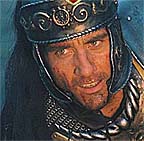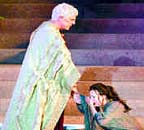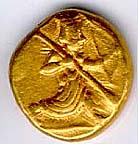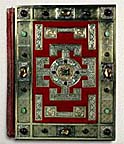 The new “King Arthur” movie coming out on July 7 looks more and more exciting – if somewhat creative with historical accuracy. I watched the History Channel’s presentation “The Quest for King Arthur” last week and it does sort of raise some questions. The movie site refers to Artorius but according to the History Channel presentation, Artorius’ men manned Hadrian’s Wall in the second century C.E. not the fifth century C.E. The program pointed to another “last of the Romans”, Ambrosius Aurelianus consistent with this excellent article by Sheila Brynjulfson on the Vortigen Studies website.
The new “King Arthur” movie coming out on July 7 looks more and more exciting – if somewhat creative with historical accuracy. I watched the History Channel’s presentation “The Quest for King Arthur” last week and it does sort of raise some questions. The movie site refers to Artorius but according to the History Channel presentation, Artorius’ men manned Hadrian’s Wall in the second century C.E. not the fifth century C.E. The program pointed to another “last of the Romans”, Ambrosius Aurelianus consistent with this excellent article by Sheila Brynjulfson on the Vortigen Studies website.
"... civil strife erupted as competition for power among rival warlords began:
Kings were anointed not by God, but who should stand out more cruel than the rest, and after a little were murdered by the anointers . .
One, in later accounts called Vortigern, emerged supreme.
Britain's "old enemies," the Picts and the Scots, who had been checked for a time, suddenly launched another fierce attack. Then came the plague. The manpower shortage which gave priority to fighting the Picts left the dead unburied. The invasion threatened to overwhelm them; Vortigern was forced to hire assistance. Gildas told how "the proud tyrant" enlisted the Saxon mercenary forces of two Saxon brothers against the northern raiders:
A council was convened, to decide upon the best and soundest means of withstanding the frequent brutal invasions and raids of the aforesaid peoples. All the members of the council, and the proud tyrant, were struck blind . . .. To hold back the northern peoples, they introduced into the island the vile unspeakable Saxons, hated of God and man alike.
In return for their services, Vortigern gave the Saxons the island of Thanet and goods to support their settlements. Later, reinforcements were imported. The alliance held until the Saxons increased their demand for supplies. When Vortigern would not pay, the Saxons mutinied. They stormed the island, burning towns and cities. Many Britons died; others fled across the Channel to Brittany or were enslaved. Another group retreated to the mountains and dense forests; among these survivors was Ambrosius Aurelianus.
A descendant of a Roman family, Ambrosius organized a coalition of former supporters of the Empire to resist the Saxons."
Maybe the filmmakers wanted the audience to have a hero with a name more similar to Arthur so they chose to use the name of the earlier commander rather than the later one.
See also: King Arthur the Movie
The Quest for King Arthur
 Shakespeare's play "Julius Caesar" is presently being performed in Kansas City and their theater critic, Robert Trussell, made some interesting observations about the importance of Shakespeare’s play in transmitting knowledge of the Roman Empire to successive generations:
Shakespeare's play "Julius Caesar" is presently being performed in Kansas City and their theater critic, Robert Trussell, made some interesting observations about the importance of Shakespeare’s play in transmitting knowledge of the Roman Empire to successive generations:
 I was reading yet
I was reading yet 